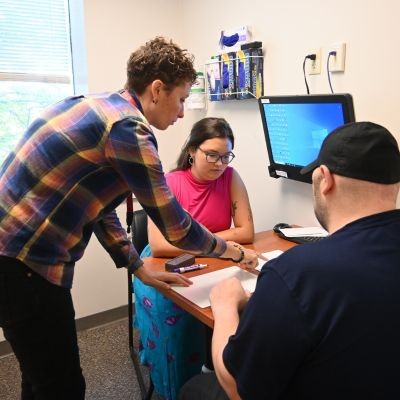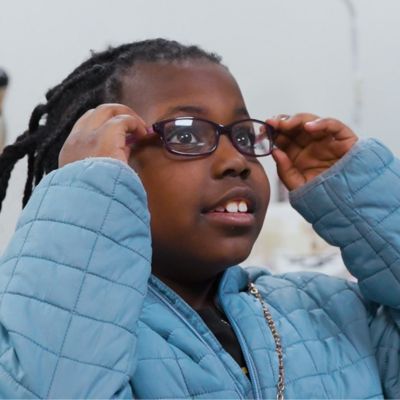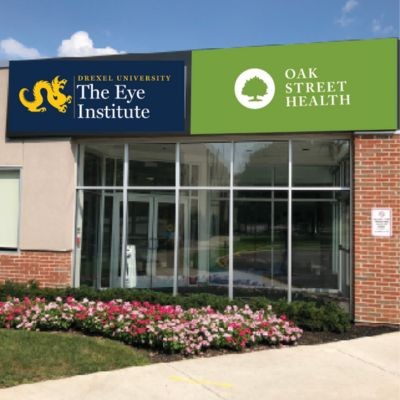As of July 3, 2025, Salus clinical facilities, The Eye Institute (TEI), the Pennsylvania Ear Institute (PEI), and the Speech-Language Institute (SLI), officially became part of Drexel University, a renowned institution known for its commitment to excellence in experiential education and health care. While this transition may bring about some changes, we want to assure you that our primary focus remains unchanged - providing you with the highest quality health care possible. Our dedicated team of providers will continue to be an integral part of the clinical facilities, ensuring continuity of care and preserving the strong relationships we have built with you over the years. From routine visits to specialized treatments, your health remains in expert hands.
-
The Eye Institute
-
Pennsylvania Ear Institute
-
Speech-Language Institute
The Eye Institute
Providing comprehensive pediatric and adult vision care services, low vision and rehabilitation services, specialty contact lenses and designer eyewear to the Philadelphia area. Learn More
Pennsylvania Ear Institute
Providing a comprehensive array of services related to the evaluation, rehabilitation, and prevention of hearing impairment with the most advanced diagnostic and rehabilitative services. Learn More
Speech-Language Institute
Providing a wide range of pediatric and adult comprehensive evaluations, individualized treatment options, and a variety of support groups for individuals with communication and swallowing disorders. Learn More





Stay Connected
@paeyeinstitute
The best way to prevent vision loss from AMD is to have regular eye health exams. Schedule an appointment today at The Eye Institute: 215.276.6111
#eyehealth #maculardegeneration #TheEyeInstitute #TEI
@paearinstitute
Live Speech Mapping is a process that uses microphones and real-time speech to allow the patient and their family members to immediately see and understand the benefits of hearing aids and fitting adjustments.
#hearinghealth #hearingaids #PennsylvaniaEarInstitute #PEI
@speechlanguageinstitute
How does a speech-language pathologist (SLP) work with cancer patients? These are some of the conditions SLPs may manage post-cancer treatment. To schedule an appointment today, call SLI at 215.780.3150.
#speechlanguagepathology #SpeechLanguageInstitute #SLI